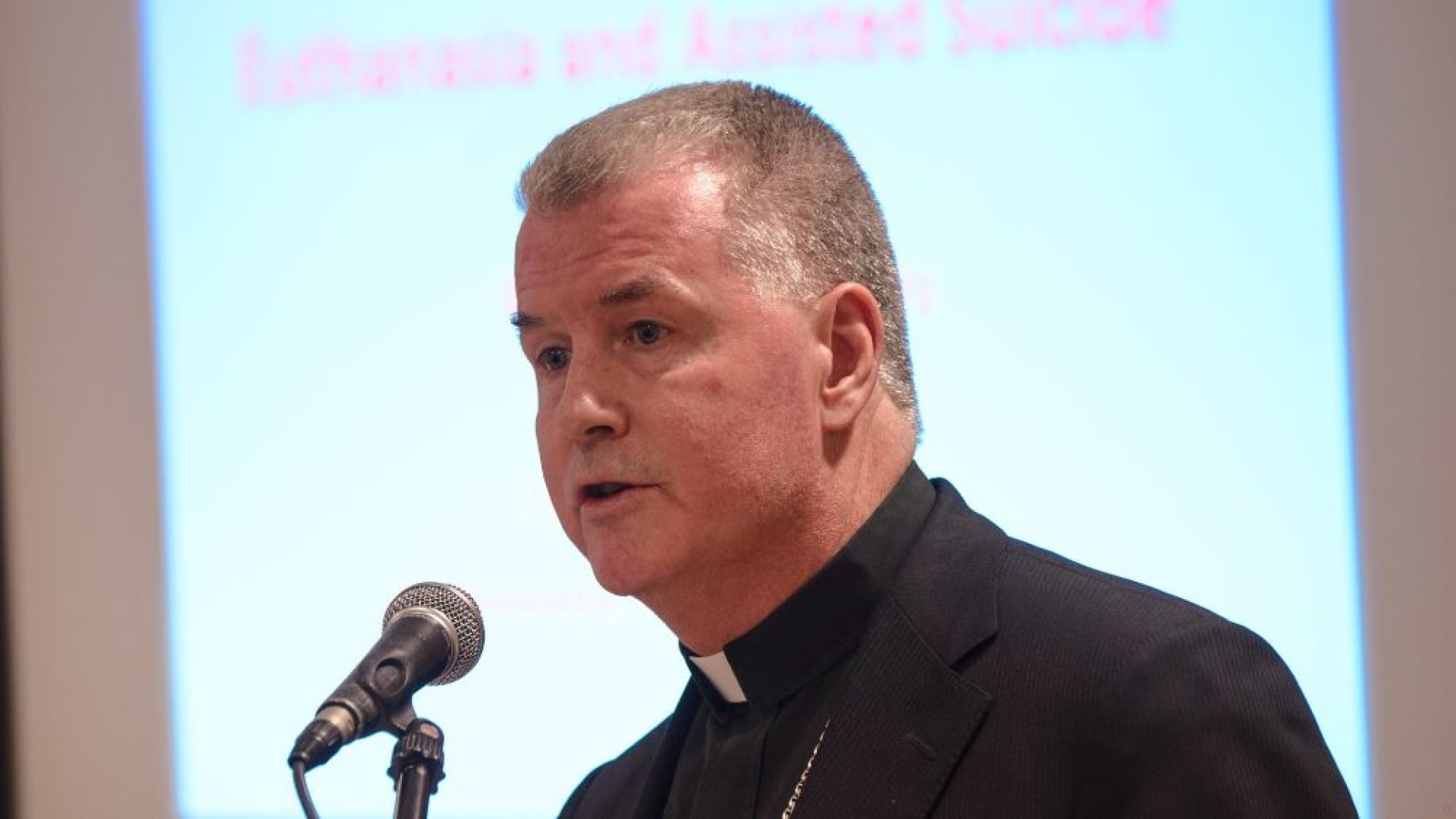Canada: Bishops Once Again Oppose Euthanasia

Bishop William Terrence McGrattan, President of the Canadian Conference of Catholic Bishops
The Catholic bishops of Canada are reproaching Justin Trudeau and the government over which he presides for his desire to include, in a future modification of the law on euthanasia, people affected by serious mental illness. In the country of maples, death in white gloves--euthanasia--represents more than 4% of the causes of death recorded.
On February 1, 2024, the Canadian government announced that it was postponing, for the second time, the extension of euthanasia to people suffering from mental illness, while insisting on the fact that it is a matter of deferment and not cancellation.
Which means that the position of Trudeau’s government remains unchanged in the matter: a person suffering from an acute psychiatric disorder is sufficiently lucid to request euthanasia, for the head of the executive branch who simply intends to step back in order to jump better.
The federal government has in fact taken up the recommendation to create a special joint parliamentary committee concerning the expansion of Medical Assitance in Dying (MAID), and Canada’s Attorney General, Arif Virani, explained the necessity of the postponement of its implementation, because: “The healthcare system must first be ready to safely provide MAID to persons whose sole medical condition is a mental illness before that access can be granted.”
Bishop William McGrattan of Calgary gave a statement to Crux, in which he said: “The federal government’s decision to simply postpone legislation that would broaden the eligibility for ‘Medical Assistance in Dying,’ which is assisted suicide or euthanasia, to persons suffering solely from mental illness, is not good news.”
In 2016, Canada legalized Medical Assistance in Dying (MAID), which covers the practices of euthanasia and assisted suicide.In 2021, hardly five years later, a new law extended these practices to people affected by a serious and incurable condition which is not life-threatening in the short term.
The criterion has become even more vague and extensible, resting on the fact, for the patient, of experiencing physical or psychological suffering that he himself considers unbearable.A person who is physically disabled or affected by a chronic illness is now eligible for euthanasia.
The legislator had also anticipated that the law could be applied to people suffering from mental illnesses starting on March 17, 2024, leaving time for reflection on conditions to require to assure people’s safety.
“Despite the opposition that has been voiced by mental health practitioners, disability groups, faith communities, and even several provincial Ministers of Health, the federal government remains fully committed to implementing this legislation, which received Royal Assent on March 9, 2023,” Bishop McGrattan added.
According to data published by the government, in 2022, there were 13,241 deaths by assisted suicide in Canada, which represents 4.1% of all deaths in the country. The 2022 figure increased by 31.2% compared to that of 2021. In many respects, these are among the highest figures in the world.
Related Article:
(Sources : Crux/Le Monde – FSSPX.Actualités)
Illustration : Flickr / michael_swan CC BY-ND 2.0 Deed





